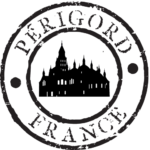
-
What are your three favourite insider tips of your city? These could be a restaurant, museum, exhibition, special place or view, artist, shop etc.
-
What is your favourite song at the moment?
-
What is your favourite book at the moment?
I.
* Visit the Auberge Mediéval in Audrix, where you eat and drink very well indeed for about 50 euros for 2. Do try the home-made ravioli stuffed with Ceps (the local mushroom) to start, and then the truffle risotto with St Jacques scallops and a lovely walnut pie. I recommend that you splash out on the wine and try a bottle of Château de la Jaubertie Cuvée Miravelle white wine. And for lunch, do not miss the delightful small wine bar, Chai Monique, in le Bugue, with her excellent light lunches and her very well-informed choice of wines. Ge to le Bugue on Tuesday mornings for the market, which has been held every week since 1324, and have the best croissant I know in Café Cauet, just behind the mairie. Xavier Cauet is a maître-chocolatier, who has spent years trying to perfect a truffle flavoured chocolate. I think he has finally succeeded.
Go and see the atelier of Isabelle Jacopin in the lovely small abbey town of Cadouin. She is a French artist who spends her winters in New Orleans and throws great parties. And visit Meyrals, a small village that has become an artists’ colony, with a terrific modern art gallery that puts on remarkable exhibitions called le Domaine Perdu. Most French towns arrange regular exhibitions of the work of local artists. They are for sale at reasonable prices and make a marvellous souvenir.
Visit the ruined Château of Commarques, off the beaten track on the road between Les Eyzies and Sarlat, a magnificent medieval fortress built atop layers of caves, some of them with prehistoric engravings. Just across the valley is Cap Blanc, with the famous bas-reliefs of animals coming out of the cave wall, and the gisement where the Venus of Laussel was found, sometimes known as the Venus with Horn. The sudden explosion in this period of producing these statues and engravings of plump and very obviously fertile women will inspire speculation about the possibility of a matriarchal society, dominated by the life-giving women. 25,000 years of history feel very close.
II.
Ever since Bob Dylan got the Nobel prize, I have had “Visions of Johanna“ as an ear-worm. But when I get back to France, I hope Jacques Brel’s “Chanson des Vieux Amants“ will have replaced it.
III.
This is shared between Jonathan Franzen’s new novel “Purity“ and James Shapiro’s “The Year of Lear“, a fascinating study of Shakespeare’s life and its political and social context in 1606, the year he wrote some of his greatest plays.
Martin Walker was born in Scotland in 1947. He is an author, historian and political journalist. For 25 years he was a journalist for the British newspaper “The Guardian“. Moreover, Walker is senior director of the Global Business Policy Council, a private think-tank based in Washington, DC and Senior Scholar at the Woodrow Wilson Center in Washington, DC. His novels “Bruno“ are translated into fifteen languages.
“Escapades“, Walker´s latest novel, was published this summer.
He lives in Washington and the Périgord region in France.


